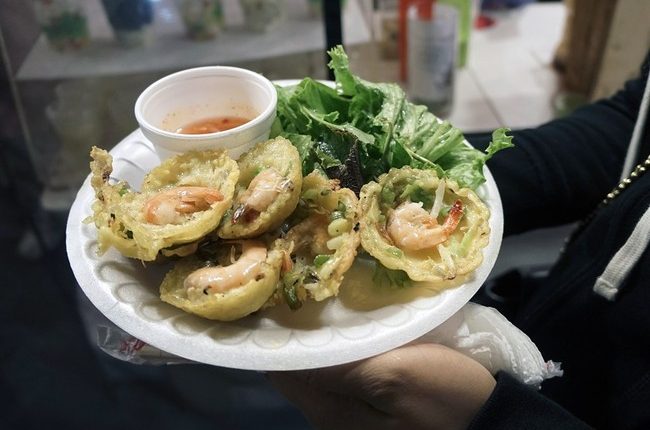
Nestled between the sob stories from people who claim that the DEI rollback is affecting their ability to get a job and entitled federal workers who seem to think that they shouldn’t lose their jobs like the rest of us poor saps do, The Atlanta-Journal Constitution actually features a positive story about Donald Trump’s tariffs today. It’s so short that if you blink, you might miss it, but it’s there.
It tells the story of Brian Richburg, a commercial fisherman off the coast of Georgia, who bought a new shrimping trawler in 2020. He says many other fishermen were retiring at the time, gas was cheap, and the price of shrimp was on the rise, so he thought he was making a wise investment. What he didn’t anticipate was the results of the 2020 election, inflation from COVID-19, and a “surge in imported shrimp,” all of which have practically killed the industry.
Right now, 90% of the shrimp consumed in the United States comes from other countries, but Richburg and other commercial fishermen in Georgia believe that will change this year when shrimping season begins in May or June, thanks to Trump’s tariffs and other policies. Shrimp is also the most popular seafood in the U.S.
“We know that plump, sweet [wild-caught] shrimp is superior [to pond-raised shrimp]… It might take a while, but we’re hopeful we’re going to gain back the business,” he told the AJC.
But that’s not all the president is doing to help our country’s seafood industry. About 11 days ago, he signed an executive order called “Restoring American Seafood Competitiveness.” The EO states:
The United States controls one of the largest and most abundant ocean resources in the world, with over 4 million square miles of prime fishing grounds. With this vast resource and centuries of hard work from American fishermen, our Nation has the greatest seafood in the world.
Most American fish stocks are healthy and have viable markets. Despite these opportunities, seafood is one of the most heavily regulated sectors in the United States. Federal overregulation has restricted fishermen from productively harvesting American seafood including through restrictive catch limits, selling our fishing grounds to foreign offshore wind companies, inaccurate and outdated fisheries data, and delayed adoption of modern technology.
The United States should be the world’s dominant seafood leader. But in addition to overregulation, unfair trade practices have put our seafood markets at a competitive disadvantage. Nearly 90 percent of seafood on our shelves is now imported, and the seafood trade deficit stands at over $20 billion. The erosion of American seafood competitiveness at the hands of unfair foreign trade practices must end.
Part of that included opening the Pacific Remote Islands Marine National Monument (PRIMNM) to commercial fishing and allowing U.S.-flagged vessels to fish commercially within 50 to 200 nautical miles of the PRIMNM’s boundaries. George W. Bush created the PRIMNM in 2009, and Barack Obama expanded upon it. The goal was to save certain fish populations from overfishing, but Trump says it did very little to help and actually hurt American Samoa, where the commercial fishing industry is a major part of the local economy.
American Samoa is home to the only Buy American-compliant tuna processing facility for U.S. military rations and school lunch programs. This cannery is the largest employer on the island, providing about 5,000 jobs. In fact, the cannery accounts for 99.5% of American Samoa’s exports and 84% of the private employment in the territory.
Samoan fishermen were forced to take their boats much further offshore into international waters “to compete against poorly regulated and highly subsidized foreign fleets, most notably from China.”
On the day that Trump signed the EO, he was surrounded by Samoan representatives in the Oval Office who told their stories. “Thank you, Mr. President, for this great announcement, and thank you so much for your awesome leadership and giving back to American Samoa what had been taken away from us without even consulting with our leaders and people at that time,” one of them said.
Here’s the entire video if you’d like to watch and learn exactly how government overreach hurt the fishing industry in the U.S.
Enjoying our articles? How would you like to gain access to exclusive content and other cool perks?
We may not be the loudest voice in the room, but we’re growing, and we’d like you to help us continue. I know it gets old when everyone is asking for money, but right now, you can become a PJ Media VIP member for only $1.63 a month or less than $20 a year. You can’t beat that price.
Just click this link to sign up and use the code word FIGHT to ensure you get the best possible deal. We can’t wait for you to join us.









